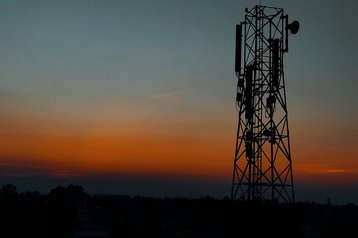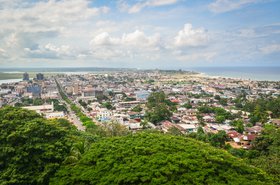A lengthy Internet outage in Bangladesh last month was blamed on protesters, but was actually government ordered, an independent probe claims.
The blackout came amid widespread student protests that led to the ouster of former Prime Minister Sheikh Hasina.
On July 18, the government announced it was blocking mobile and broadband Internet access, shutting down news broadcasts, and access to social media in light of the protests. Broadband services resumed a few days later, but only to selected areas and business sectors.
At the time, then-ICT minister Zunaid Ahmed Palak blamed the ongoing outages on protesters.
He claimed staff at three data centers in the Mohakhali area of Dhaka, including the Khawaja Tower, were forced to shut down their servers because they feared being attacked.
“On July 17 and 18, we suspended Internet services on a limited scale in some areas for security reasons. However, on July 18, from 3pm to 9pm, widespread destruction ensued,” he said.
Palak added: "During this time, the data center on the ground floor of the Mohakhali Relief Rehabilitation Centre was completely burnt down.
“Data and technical analysis indicate that several identified terrorists carried out these planned attacks. Those responsible have been arrested, and law enforcement has gathered information from them.”
He also said that "hundreds of kilometers of fiber cables" we burnt and cut across the country.
Mohammad Ali Arafat, state minister for information and broadcasting, also claimed a data center had been burned down.
At the time, journalists were unable to find proof of any fire.
Now, a preliminary report from an independent seven-person committee appointed by the Ministry for Posts, Telecommunications, and Information Technology said that there was no fire.
Instead, it said that Palak himself had ordered the blackout, telling Bangladesh Telecommunication Regulatory Commission (BTRC) chairman Md Mohiuddin Ahmed to order operators to shut down their Internet services.
"By falsely associating the Internet shutdown with the damage caused to the data center by the fire, former state minister Zunaid Ahmed Palak misled the nation and engaged in deception," the report said.
Following the deadly demonstrations, Prime Minister Hasina resigned and fled the country after nearly two decades in power. General Waker-Uz-Zaman announced an interim government, led by Nobel Peace Prize-winning economist Muhammad Yunus.
Yunus also founded Grameen Telecom, the largest mobile phone company in Bangladesh.
Palak, meanwhile, tried to follow Hasina in fleeing the country - but was detained at Dhaka airport. He has been replaced by interim ICT minister Nahid Islam.




